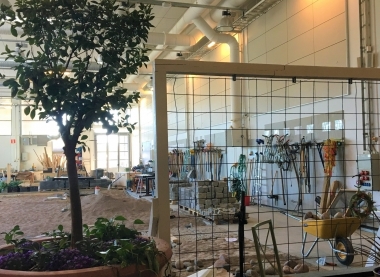Education
Latest
Reflections from Gatsby’s international study visits
In 2018 Gatsby undertook a series of study visits to Denmark, Finland, the Netherlands and Norway to explore the routes-based technical education systems in these countries. We were joined on the visits by senior leaders from FE colleges across England and DfE officials engaged with technical education reform.

Each group met with key stakeholders including: students, teachers, government officials, national agencies for technical education and quality assurance, colleges (typically known as VET schools) and employers offering industry placements and/or apprenticeships.
Each visit offered rich opportunities to build our understanding of the routes that students were taking to employment and other progression paths and to reflect on common challenges and share expertise.
As well as developing our general understanding of the technical education system in each country, the focus for this series of visits centred around two main themes:
- Recruitment and retention of the teaching workforce, including initial teacher education and CPD requirements and systems
- Governance and alignment of the technical education system with the labour market at national, local and institutional levels
Teacher recruitment and upskilling
In the Netherlands, a familiar picture was presented of challenges for the recruitment of skilled teachers in technical education, in part due to differences in salary between teaching and industry. We discussed initiatives to encourage industry professionals into teaching on a part-time or short-term basis, offering a potential path to build up to full employment as teachers over time. We also shared experiences of exchange programmes, which give company trainers who supervise students on industry placement an opportunity to develop their pedagogy, while enabling current teachers to spend time in contemporary industry environments.
There were similarities with our approaches to industry collaboration in the further education sector; for instance, industry sharing of current equipment with providers and the co-delivery of curriculum.
In several of the countries visited the qualification requirements for teachers are high. In Finland, for example, teachers of technical education are required to hold a bachelor’s degree in their field, at least three years’ occupational experience and pedagogical training. Despite the rigorous entry requirements, teaching is considered an attractive career choice in Finland, with only 30% of applicants for initial teacher education programmes at Haaga-Helia University of Applied Sciences securing a place.
Governance and labour market alignment
As in England, the providers we spoke with work to build strong relationships with employers in their local labour markets. These links enhance students’ learning, and help them make informed career choices, whilst also supporting the development of industry placement opportunities.
During our visits we saw a range of national and local scaffolding to support education-industry relationships. At a national level, regular review of provision and input from stakeholders including training providers, social partners, employer bodies, and government agencies is a common factor in keeping curricula up to date. At local levels, approaches to ongoing improvement in provision reflected links between local government and providers. For example, in Denmark a National Council formed of members from employer associations advises the Ministry of Education on labour market issues affecting technical education; a Vocational Committee of industry experts oversees and conducts annual reviews of each of the technical education programmes; and Local Education Committees with membership from regional business communities advise on highly localised and college-specific matters to inform decisions on each college’s curriculum offer.
Similarly, in Norway, social partners and employer representative bodies advise on provision, with a National Council for VET and County Vocational Training Boards highlighting national and local needs respectively. The Norwegian Directorate for Education and Training collects and interprets data from the advisory bodies to form the Ministry’s policy evidence base in relation to technical education programmes.
Reflections
Clearly each system is embedded in its national context and culture, yet there are common challenges for technical education, such as maintaining provision in line with industry developments, and building a secure and well-supported teaching workforce. The variation we learned of in approaches to evaluation and improvement across the systems led our group to reflect on the nature of autonomy in further education in England.
A central approach employed by these countries in addressing challenges is embedding clarity in their systems. The purposes of technical education – for students, providers and employers – are clearly communicated, with lines of sight to employment and progression opportunities available throughout. This strong understanding of the expectations of and opportunities for all parties has helped to build the reputations of these systems as leaders in technical education.

